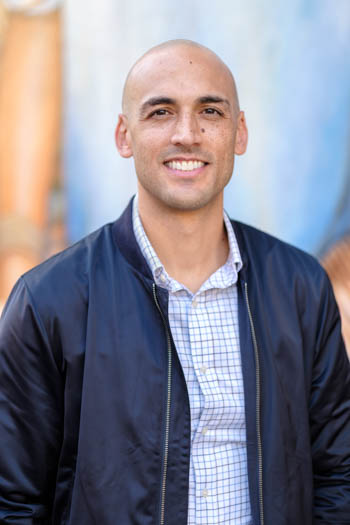Campus News
MacArthur ‘genius’ grant winner reflects on early influences at UC Santa Cruz
Forrest Stuart has built his career pursuing burning questions about the societal underpinnings of poverty and criminalization across disciplines. Stuart said his research focus has been influenced both by his childhood and the formative experiences of his undergraduate education at University of California, Santa Cruz, where he earned his bachelor’s in politics in 2004.

Forrest Stuart has built his career pursuing burning questions about the societal underpinnings of poverty and criminalization across disciplines. Now, his most recent accolade, a $625,000 funding award from the MacArthur Foundation, places him among a select group of the nation’s top change-makers and creative thinkers.
Stuart said his research focus has been influenced both by his childhood and the formative experiences of his undergraduate education at University of California, Santa Cruz, where he earned his bachelor’s in politics in 2004. During his youth, Stuart’s hometown of San Bernardino had some of the highest poverty and per-capita homicide rates in the country.
“Growing up, these things were kind of normalized,” Stuart recalled. “And then, arriving at UC Santa Cruz, some of the classes I took hit me like a ton of bricks. It was the first time in my life where I was able to trace events, like my friend’s father being gunned down, to the legacies of policies.”
Stuart felt a deep sense of anger, but also empowerment. He started thinking about the role he could play in changing policy decisions and cultural ideologies for the better. And as he began charting his academic path toward that outcome, a lecturer in one of his UC Santa Cruz contemporary political theory courses offered some advice that still sticks with him.
“I remember he told me to figure out what your big question is in life, then think about everything you read and every class you take as getting you closer to finding an answer to that question,” Stuart said. “It gave me this entirely new framework. Find that question, then figure out what it takes to answer that question, and follow that path.”
Stuart’s central questions in life were very clear. He wanted to understand the societal issues affecting communities like his hometown, and he wanted to find solutions. In his first book, Down, Out and Under Arrest: Policing and Everyday Life in Skid Row, Stuart documented the effects of the first five years of the Safer Cities Initiative on the community of Los Angeles’s Skid Row. His second book, Ballad of the Bullet: Gangs, Drill Music, and the Power of Online Infamy, explored the role of social media in the lives of gang-associated youth in Chicago.
The MacArthur win will be crucial to supporting the next steps in Stuart’s work. He hopes to return to Chicago and collaborate with social workers and photographers to shift the focus from young men engaged in urban violence to the women in their lives. This work will involve community members as co-producers of knowledge and provide trauma-informed services in that process.
Part of Stuart’s unique impact comes from his deeply humanistic and immersive approach, and the MacArthur win has offered strong validation for that vision. In his current role, as an associate professor in the Department of Sociology at Stanford University and director of the Stanford Ethnography Lab, Stuart is hard at work training the next generation of sociologists. One of the lessons he passes along is that the search for solutions always starts at the personal level.
“Social forces and social processes, no matter how big they may seem, are always made in these micro moments,” Stuart said. “We can’t get to that unless we build intimate relationships with people.”